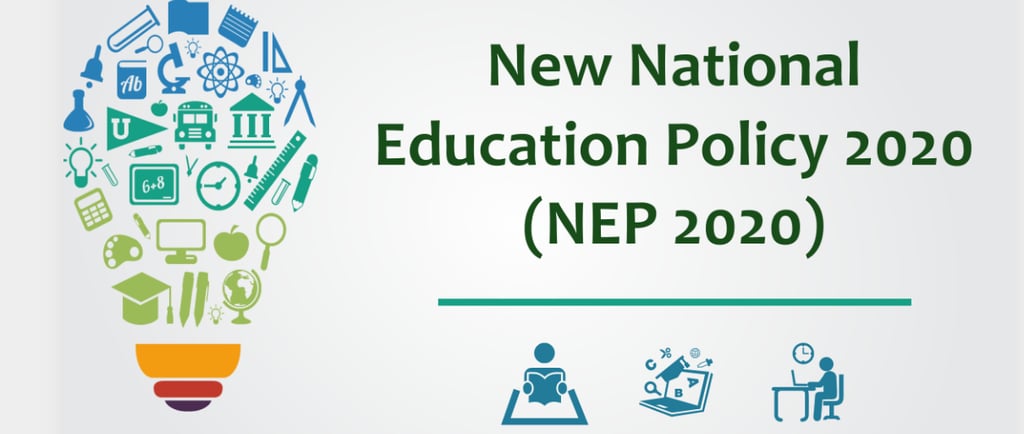"Navigating Challenges: Implementing the New Education Policy in Institutions''
Understanding Difficulties faced by institutions while implementing NEP


"Navigating Challenges: Implementing the New Education Policy in Institutions''
The introduction of the New Education Policy (NEP) has sparked a wave of optimism and excitement for the future of education in our country. With its ambitious vision and transformative goals, the NEP aims to revitalize the education system and equip learners with the necessary skills for success in the 21st century. However, as institutions embark on the journey of implementing the NEP, they are confronted with a range of challenges that require careful consideration and proactive measures.
Infrastructure and Resource Constraints:
One of the foremost difficulties institutions face in implementing the NEP is the lack of adequate infrastructure and resources. The policy advocates for a multidisciplinary approach, integration of technology, and establishment of new schools in remote areas. However, many institutions struggle with limited funding, outdated infrastructure, and insufficient resources, making it challenging to provide the desired learning environment and access to modern educational tools.
Faculty Training and Capacity Building:
The successful implementation of the NEP hinges on the preparedness and competence of the teaching faculty. The policy emphasizes the need for teacher training, upskilling, and professional development to align with the new pedagogical approaches and multidisciplinary teaching. However, institutions often face hurdles in organizing comprehensive training programs, arranging expert faculty, and ensuring continuous capacity building opportunities, all of which are critical for empowering educators to effectively deliver the updated curriculum.
Alignment with Existing Examination Systems:
The NEP advocates for a shift from rote learning and high-stakes examinations to a more holistic and competency-based evaluation system. While this change is undoubtedly beneficial, it poses significant challenges for institutions already entrenched in the traditional examination-oriented approach. Aligning curriculum, assessment methods, and grading systems with the NEP's vision requires a careful balance between adhering to existing norms and embracing the new paradigm, necessitating substantial planning, coordination, and revision of assessment practices.
Mindset Shift and Resistance to Change:
Implementing a policy as comprehensive and transformative as the NEP requires a significant mindset shift at all levels of the education system. However, resistance to change is a common challenge faced by institutions. Stakeholders, including administrators, teachers, parents, and students, may be apprehensive about the unfamiliarity and uncertainties associated with the new approaches. Overcoming this resistance necessitates effective communication, awareness campaigns, and building a shared understanding of the benefits and long-term vision of the NEP.
Monitoring and Evaluation:
Ensuring the effective implementation and progress of the NEP requires robust monitoring and evaluation mechanisms. Institutions need to establish systems for tracking and assessing the outcomes of the policy, including student performance, teacher development, and infrastructure improvements. However, the lack of standardized monitoring frameworks and resources poses a significant challenge for institutions, hindering their ability to measure the impact of the NEP and make necessary adjustments for improvement.
While the New Education Policy presents a transformative vision for the future of education, its implementation is not without challenges. Institutions face obstacles related to infrastructure, faculty training, alignment with examination systems, mindset shifts, and monitoring and evaluation. Addressing these difficulties requires a collective effort from all stakeholders, including government bodies, institutions, educators, and policymakers. By recognizing and proactively addressing these challenges, we can overcome the barriers and ensure the successful implementation of the NEP, ultimately paving the way for a more inclusive, progressive, and effective education system in our country.